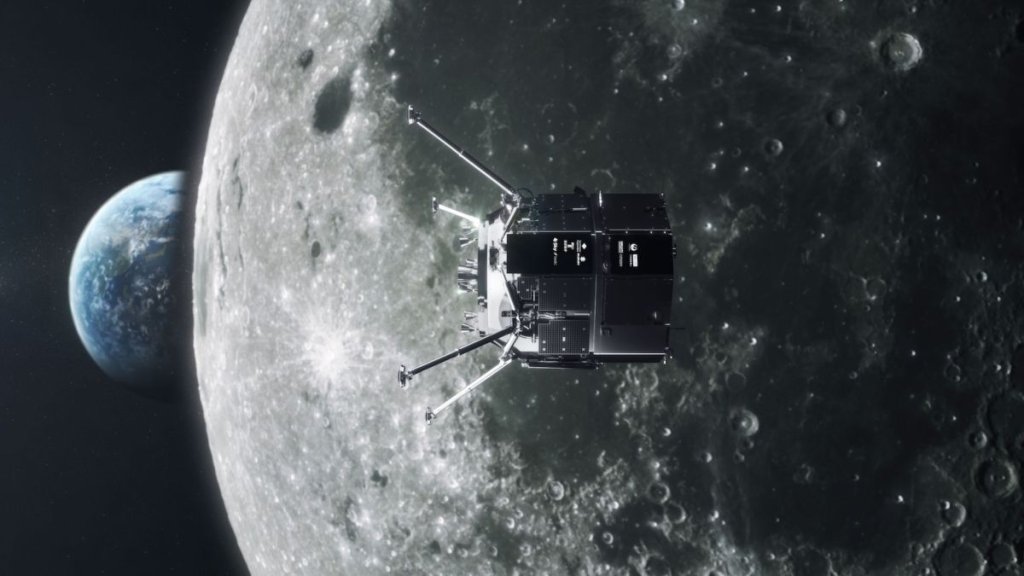A Japanese company will attempt the first successful private landing on the moon, and you can watch the whole thing live.
Should Hakuto-R make it, the lander will be the first privately operated spacecraft to land safely on the moon. ispace plans to place the Hakuto-R lander on the moon on Tuesday (April 25) at 12:40 p.m. EDT (1640 GMT). You can watch the whole thing live here at Space.com, via ispace (opens in new tab), starting at 11 a.m. EDT (1500 GMT).
The primary landing site is Atlas Crater, located at the southeastern outer edge of Mare Frigoris (“Sea of Cold”), according to earlier statements (opens in new tab) from the company.
“Should conditions change, there are three alternative landing sites and depending on the site, the landing date may change. Alternative landing dates, depending on the operational status, are April 26, May 1 and May 3, 2023,” ispace officials wrote on April 12 (opens in new tab).
Related: Private Japanese moon lander reaches lunar orbit
The Hakuto-R spacecraft launched in December 2022 atop a SpaceX Falcon 9 rocket and is in a roughly circular orbit some 62 miles (100 kilometers) above the lunar surface. The spacecraft has sent numerous incredible images from orbit already.
We are excited to share a new photo of the Moon taken by the lander’s on-board camera from an altitude of about 100 km above the lunar surface. The photo was taken at 4:32 am on April 15 (JST). (1/2) pic.twitter.com/PWux4GJLIxApril 24, 2023
One image beamed home by Hakuto-R captured a stunning Earthrise that occurred at the same time as last week’s hybrid solar eclipse. In the photo, the shadow of the moon can be seen as it moves across the face of the Earth in the South Pacific.
We’ve received another incredible photo from the camera onboard our Mission 1 lander!Seen here is the lunar Earthrise during solar eclipse, captured by the lander-mounted camera at an altitude of about 100 km from the lunar surface. (1/2) pic.twitter.com/pNSI4lPnuxApril 24, 2023
The landing sequence will include several steps, ispace officials wrote. “The lander will perform a braking burn, firing its main propulsion system to decelerate from orbit. Utilizing a series of pre-set commands, the lander will adjust its attitude and reduce velocity in order to make a soft landing on the lunar surface. The process will take approximately one hour.”
(opens in new tab)
Also on board the mission are the mini Rashid rover for the United Arab Emirates’ (UAE) space agency, an artificial intelligence system from Canadian company Mission Control and a multi-camera imaging system by Canadian company Canadensys Aerospace.
UAE’s first long-duration astronaut Sultan Al Neyadi posted a message to Twitter (opens in new tab) on Monday (April 24) from the International Space Station, wishing the mission success as it approaches its historic landing attempt.
Tomorrow, we eagerly anticipate the landing of #RashidRover on the Moon, as part of the first Emirati and Arab lunar mission🌑🇦🇪While the success rate for such missions has not exceeded 50%, we are confident in our team at MBRSC.I wish them all the best for this historic voyageApril 24, 2023
Only three other countries have soft landed on the moon before: The United States, the Soviet Union and China.
ispace has big growth plans, too. It was listed (opens in new tab) on the Tokyo Stock Exchange Growth Market on April 12 and is planning second and third moon missions no earlier than 2024 and 2025, respectively.
Elizabeth Howell is the co-author of “Why Am I Taller (opens in new tab)?” (ECW Press, 2022; with Canadian astronaut Dave Williams), a book about space medicine. Follow her on Twitter @howellspace (opens in new tab). Follow us on Twitter @Spacedotcom (opens in new tab) or Facebook (opens in new tab).

